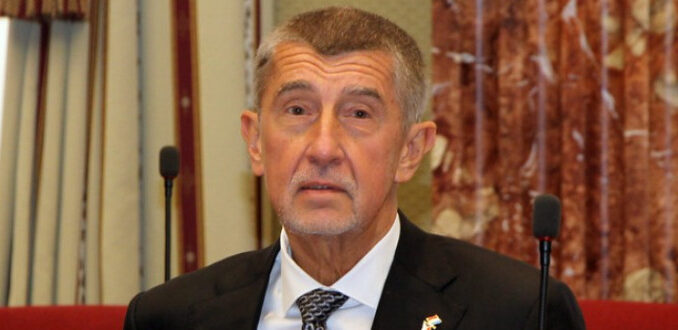
[Andrej Babiš ovládl státní rezervy. Jeho Animalco dodá 1000 tun masa a o další se bude ucházet]

Executive Summary

This article investigates the recent decision of the Czech government to contract with Andrej Babiš’s company, Animalco, for the supply of 1,000 tons of meat to the state’s strategic reserves. This contract has sparked controversy, raising concerns about potential conflicts of interest and the lack of transparency surrounding the process. The article delves into the details of the deal, examines the arguments surrounding it, and explores the potential consequences for both the Czech government and Babiš’s company.

Introduction
The Czech government, facing a potential food crisis in the wake of the ongoing war in Ukraine, has chosen to replenish its strategic reserves with 1,000 tons of meat. The chosen supplier, Animalco, is a company owned by former Prime Minister and current presidential candidate Andrej Babiš. This decision has generated significant public scrutiny and criticism, with accusations of cronyism and misuse of public funds being levelled against Babiš.
Frequently Asked Questions
- Why is the Czech government building up its food reserves? The government cites the ongoing conflict in Ukraine and potential disruptions to global food supply chains as the main reasons for increasing its strategic reserves.
- How much meat will Animalco supply? Animalco has been contracted to provide 1,000 tons of meat to the state reserves.
- What are the potential consequences of this contract for Babiš? The contract could strengthen Babiš’s image as a powerful and influential figure in Czech politics, but it also carries the risk of further damage to his reputation, particularly if allegations of corruption are substantiated.
Andrej Babiš’s Role in the Deal
The decision to award the contract to Animalco has ignited a fierce debate about Babiš’s influence within the Czech government. Babiš, a former prime minister and a prominent businessman, faces accusations of using his political connections to benefit his own companies.
- Conflict of interest: Babiš’s ownership of Animalco poses a clear conflict of interest, as he stands to profit directly from the government contract.
- Transparency concerns: The process leading to the contract award has been criticized for its lack of transparency, with allegations of preferential treatment being made against Babiš and his allies within the government.
- Potential for corruption: The contract has raised fears of potential corruption, with some arguing that the government paid an inflated price for the meat to benefit Animalco and Babiš.
- Political capital: The contract has been interpreted by some as a way for Babiš to consolidate his power and increase his political capital ahead of the upcoming presidential election.
The Potential Consequences for the Czech Government
The government’s decision to contract with Animalco carries significant risks, both in terms of public perception and potential financial repercussions.
- Damage to reputation: The deal has tarnished the government’s image, casting a shadow of suspicion and corruption over its actions.
- Public unrest: The contract has fueled public anger and distrust, potentially leading to increased political instability.
- Financial implications: The contract may have been negotiated at an inflated price, potentially leading to a loss of public funds.
- International scrutiny: The deal has attracted international attention, potentially damaging Czech Republic’s reputation and its standing within the European Union.
Animalco’s Position
Animalco, the company contracted to supply the meat, has defended its position, stating that it won the tender fairly and that its products meet the necessary quality standards.
- Fair tender process: Animalco insists that it won the contract through a transparent and competitive tender process, denying any allegations of preferential treatment.
- Quality assurance: Animalco emphasizes the quality of its products, assuring the government and the public that the meat meets the required standards for state reserves.
- Economic benefits: Animalco points out the economic benefits of the contract, highlighting the creation of jobs and the stimulation of the local agricultural sector.
- National security concerns: Animalco underscores the importance of bolstering the country’s food security, emphasizing its commitment to meeting the government’s needs during a potential crisis.
Conclusion
The Czech government’s decision to contract with Andrej Babiš’s company, Animalco, for the supply of meat to state reserves has sparked a heated debate about potential conflicts of interest and the lack of transparency in the process. While the government emphasizes the need to secure food security in the face of global challenges, the deal has raised serious concerns about Babiš’s influence and potential corruption. The contract’s impact on both the Czech government’s reputation and Babiš’s political standing remains to be seen, with the potential for long-lasting consequences for both parties involved.
Keywords
- Andrej Babiš
- Animalco
- State reserves
- Food security
- Corruption
- Czech government
- Conflict of interest
Ministr financí a miliardář Andrej Babiš (ANO) zvítězil v první části veřejné zakázky pro státní rezervy na dodávku 1000 tun mraženého masa.
Podělte se o svůj názor